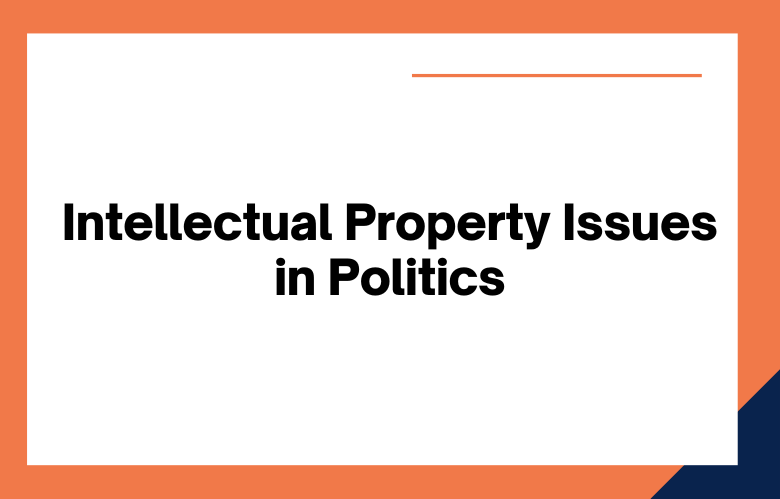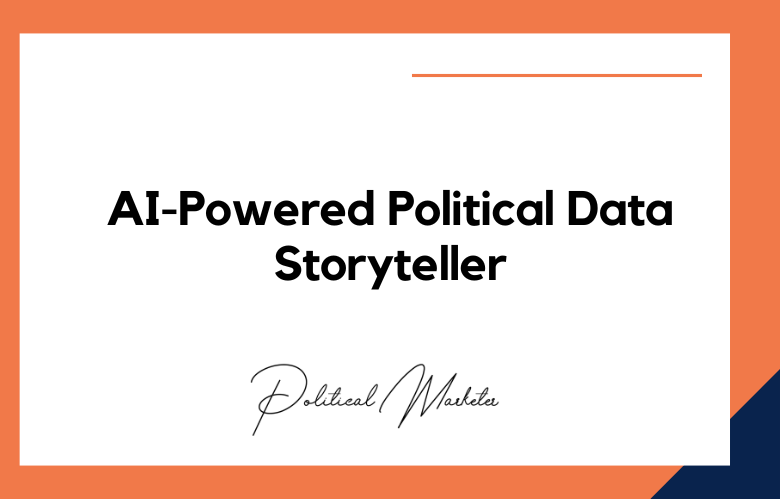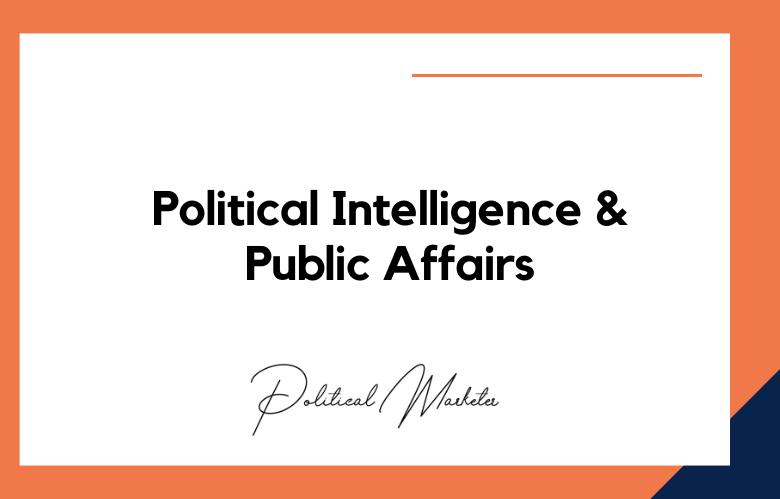In the social media and digital content age, copyright and intellectual property issues have become increasingly prevalent in politics.
From politicians using copyrighted music without proper permission to disseminating fake news, navigating these issues has become essential to political campaigns and discourse.
Understanding the implications of copyright law and intellectual property rights in politics is necessary to ensure that individuals and organizations do not violate the law.
The article aims to understand these issues comprehensively and why they matter in politics.
In today’s world, technology has made it much easier to share and access information and ideas.
However, as the world becomes increasingly digitized, the issue of intellectual property and copyright has become more complex.
Politicians are not exempt from these issues, as they frequently use copyrighted material in their campaigns and speeches. What are the ethical and legal consequences of using intellectual property without permission in politics?
I will explore these issues and examine important copyright and intellectual property cases in politics.
What is the Impact of intellectual property laws on political campaigns?
Intellectual property laws profoundly impact political campaigns as they regulate the ownership and use of creative works, such as logos, slogans, and advertising materials.
Political campaigns rely heavily on these creative works to build their brand and convey their message to potential voters.
One significant Impact of intellectual property laws on political campaigns is the need for campaigns to secure the proper rights to use copyrighted materials.
For example, if a campaign wants to use a popular song in its advertisements, it must obtain permission from the copyright owner and potentially pay licensing fees.
Failure to secure the proper permissions could lead to legal consequences for the campaign.
Can campaign slogans or logos be protected by copyright law?
Campaign slogans and logos are crucial in political campaigns as they communicate a message to the public and differentiate one candidate from another.
With the increasing importance of marketing and branding in politics, questions have arisen about whether these slogans and logos can be protected by copyright law.
In the United States, copyright law covers original works of authorship, including literary, artistic, and graphic works.
This means that slogans and logos that meet the standard of originality could be protected by copyright law. However, specific requirements must be met to watch a slogan or logo.
Firstly, the slogan or logo must be original, meaning it must be the product of the author’s creative effort and not simply a copy of someone else’s work. Secondly, the slogan or logo must be fixed in a tangible medium, such as on paper or a computer file.
The slogan or logo must not be generic or descriptive, as copyright law protects unique and original works.
Copyright infringement in political advertising: Legal issues and concerns?
Copyright infringement in political advertising is a complex legal issue that raises numerous concerns.
In recent years, political campaigns have increasingly used copyrighted materials, such as sound recordings, photographs, and video footage, in their advertisements.
However, using these materials without obtaining proper permissions or licenses can result in claims of copyright infringement.
Political advertising often contains parody, satire, and commentary, traditionally protected under the fair use doctrine.
However, the line between fair use and copyright infringement can be blurry, and many political advertisements push the boundaries of this legal concept.
Fair use is not a blanket defense, and courts consider four factors when determining whether a particular use of copyrighted material is fair:
The purpose and character of the use, the nature of the copyrighted work, the amount and substantiality of the portion used, and the effect of the use upon the potential market for the copyrighted work.
The Role of intellectual property rights in political speeches and Debates?
Intellectual property rights play a significant role in contemporary political speeches and debates, as they represent a critical issue for individuals and companies alike.
Intellectual property rights safeguard innovation, creativity, and entrepreneurial spirit.
In a globalized and highly competitive environment, intellectual property protection is essential to enable entrepreneurs, artists, and creators to reap the benefits of their hard work.
Political leaders regularly discuss and debate issues related to intellectual property rights, such as copyright law, trademark protection, patent litigation, and trade secrets.
These issues have become increasingly complex in the digital age, where the ease of sharing and copying digital content has made it harder to enforce intellectual property laws.
Insider tips: protecting intellectual property in politics?
Keep your ideas confidential:
If you have an idea for a political campaign or policy initiative, it’s essential to keep it confidential until you’re ready to launch.
If you share your idea with too many people, it could be leaked and used by someone else without your permission. To protect your vision, only share it with a small group of trusted individuals essential to its development.
Get a patent:
You may want to get a patent if you have a unique idea. A patent will give you the exclusive right to use and sell your invention for some time. However, patents can be expensive and time-consuming to obtain, so make sure you consult with a patent attorney before moving forward.
Copyright your work:
Copyright law can also be used to protect political ideas. You can copyright it if you’ve written a book, created a website, or developed some other type of work with original content. This will prevent others from using or copying your work without your permission.
Trademark your slogan or logo:
If you have a catchy slogan or logo for your political campaign, you should trademark it. This will prevent others from using it without your permission and will help to create brand recognition for your campaign.
Keep records of your ideas:
Keeping records of your ideas is essential, even if you don’t think they’re fully developed. This will help to prove that you came up with the idea first if someone tries to steal it from you.
Keep detailed notes about when you came up with the idea, what inspired it, and any steps you’ve taken to develop it further. You may also want to keep email correspondence and other records that show you shared the idea with others before it was made public.
Be careful what you post online:
In today’s digital age, it’s easy to accidentally share too much information online. Consider what you post on social media or other websites if you’re working on a new political project.
Even if you think something is safe to share, it could be seen by someone who isn’t supposed to have access to it and use it without your permission.
An Analysis of intellectual property disputes in political history?
Intellectual property disputes have been a recurring issue in political history. The need to protect one’s intellectual creations, such as inventions, literary or artistic works, and trademarks, has led to legal battles and international disputes.
In the early decades of the 19th century, the United States government passed laws to protect American inventors’ intellectual property from being stolen by foreign entities.
This legal framework eventually led to a global movement toward protecting intellectual property rights, culminating in the establishment of the World Intellectual Property.
Organization (WIPO) in 1967, an agency of the United Nations responsible for promoting and protecting intellectual property rights worldwide.
What is the importance of intellectual property laws in protecting a politician’s reputation?
Intellectual property laws play a crucial role in safeguarding the reputation of political brands.
Political leaders and parties invest significant resources to create and disseminate their ideas, policies, slogans, logos, and other tangible and intangible assets representing their brand identity.
These assets are used for campaign purposes and to communicate the message and values of the political brand.
Thus, any unauthorized use, modification, or misuse of these assets can tarnish the politician’s reputation, credibility, and authenticity. This, in turn, can damage the public trust and support that the political brand needs to succeed.
Intellectual property laws provide legal protection for creative and original expressions of ideas and concepts, giving political brands exclusive rights to use, control, and license their intellectual assets.
These laws also provide provisions for taking legal action against any infringement or violation of these rights.
Balancing free speech and copyright protection: Exploring the tension in the political arena?
In recent years, the issue of balancing free speech and copyright protection has become an essential topic of discussion in the political arena.
On the one hand, individuals and organizations argue for the protection of their intellectual property rights, which can be enforced through strict copyright laws.
On the other hand, free speech advocates contend that overly restrictive copyright laws can stifle creativity, impede the free flow of information, and limit the ability of individuals to express themselves freely.
The debate is particularly relevant in the digital age, where the proliferation of online content has led to a surge in copyright infringement.
In response, governments and various interest groups have sought to strengthen copyright laws to protect the rights of artists, authors, and other creatives.
However, these efforts have often been met with fierce opposition, with critics arguing that some proposed measures may limit the free expression of ideas and stifle innovation.
Intellectual property challenges faced by political bloggers and journalists?
Political bloggers and journalists face numerous challenges in intellectual property, which can significantly impact their ability to produce and disseminate information freely and effectively.
One such challenge is the issue of copyright infringement, which arises when bloggers and journalists use copyrighted materials without obtaining proper authorization from the copyright owner.
This can include copyrighted images, videos, and other media forms commonly used in news reporting and commentary.
In addition to copyright issues, political bloggers and journalists must also navigate the complex world of trademark law.
This includes being mindful of using trademarks in their reporting and commentary and ensuring that their website and branding materials do not infringe on the trademarks of others.
Conclusion:
As political campaigns leverage technology and social media, copyright and intellectual property issues will remain essential in the political sphere.
Political campaigns need to be aware of these issues and take steps to ensure that they abide by relevant laws and regulations.
By doing so, they can avoid legal repercussions and ensure that their messaging resonates with voters ethically and responsibly. In conclusion, the issue of copyright and intellectual property in politics is complex and often ambiguous.
As technology makes it easier to share information and ideas, politicians must remain vigilant about the legal and ethical use of copyrighted material.
Copyriinfringement’s legal and financial consequences can be severe, and politicians must comply with intellectual property laws.
Awareness campaigns, clarifications, and constant updates regarding copyright laws will help politicians operate ethically and lawfully.
If we can address these issues, we can create a culture of respect for intellectual property and fair use in politics.
Call: +91 9848321284
Email: [email protected]
Copyright and Intellectual Property Issues in Politics: FAQs
What Is Intellectual Property In A Political Context?
Intellectual property (IP) in politics includes campaign logos, slogans, speeches, advertisements, jingles, websites, and creative materials used for public communication.
Why Is Copyright Important For Political Campaigns?
Copyright protects original content such as videos, images, speeches, and websites from unauthorized use, ensuring ownership and brand integrity for political figures.
Can Political Slogans Be Copyrighted Or Trademarked?
Slogans can be trademarked if unique and used to identify the campaign or party. Copyright may apply if the slogan is part of a larger creative work.
What Happens If A Campaign Uses Copyrighted Music Without Permission?
Unauthorized use of copyrighted music can lead to takedown notices, fines, lawsuits, or public backlash, mainly when used in rallies or online videos.
Does the Law protect Political Campaign Logos?
Yes, logos are typically protected under trademark law and should not be copied or altered without explicit authorization from the owning party or campaign.
Can Political Opponents Use Each Other’s Media Clips?
Fair use might apply in commentary, parody, or criticism, but it’s a legal gray area and often results in copyright disputes or DMCA takedowns.
Is It Legal To Use News Footage In Campaign Ads?
It depends on the broadcaster’s license and terms. Using copyrighted footage without the rights or permission can trigger legal consequences.
How Can Politicians Protect Their Campaign Materials?
By registering copyrights and trademarks, using watermarks, publishing terms of use, and monitoring digital platforms for infringement.
What Is The Role Of Creative Commons In Political Campaigns?
Creative Commons licenses allow some content to be reused legally. However, not all licenses permit commercial or political use—check license terms carefully.
Can AI-Generated Political Content Be Copyrighted?
Currently, most jurisdictions don’t recognize AI-generated content as copyrightable unless a human can claim authorship or creative direction.
How Do DMCA Takedown Notices Apply To Politics?
Political campaigns can issue Digital Millennium Copyright Act (DMCA) notices to remove unauthorized use of their content from platforms like YouTube or Facebook.
Does Copyright Protect Political Memes?
If memes use copyrighted content (e.g., music, images), they may violate IP rights unless they fall under parody or fair use exceptions.
Can A Political Party Use Stock Images In Campaigns?
Yes, but only if licensed properly. Unauthorized or expired licenses can result in copyright violations and penalties.
What Is The Risk Of Using Celebrity Images In Political Ads?
Using a celebrity’s image without permission may violate their publicity rights, leading to lawsuits or public relations issues.
How Can Political Consultants Ensure IP Compliance?
Maintaining an inventory of creative assets, reviewing usage rights, using licensed content, and consulting IP lawyers when needed.
Is Satirical Political Content Exempt From Copyright?
Satire and parody may qualify for fair use, but it depends on the context, jurisdiction, and whether the content transforms the original meaning.
Can Volunteers Infringe Copyright While Promoting Campaigns?
Yes, if they share unlicensed content, music, or images on behalf of the campaign, the organization can be held liable.
Are Social Media Platforms Responsible For Political IP Violations?
Platforms are typically protected under intermediary liability laws, but must act on valid DMCA notices and enforce community guidelines.
What Are Trademark Infringement Risks In Politics?
Using a name, logo, or symbol similar to another campaign or organization may confuse voters and lead to trademark disputes or legal action.
Why Should Political Campaigns Audit Their IP Regularly?
Regular audits help identify infringement risks, ensure compliance, secure valuable content, and protect the campaign’s brand identity.











